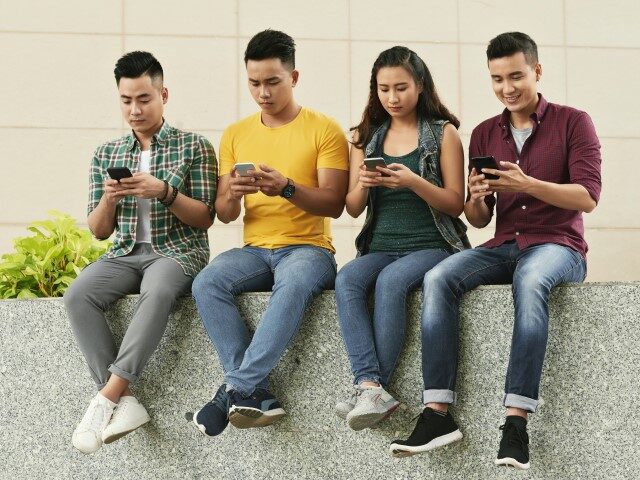Vietnamese state media reported on Monday that the communist government is set to issue an amendment to the national telecommunications law before the end of 2023 that requires both foreign and domestic social media users to register their identities with law enforcement.
The communist regime is implementing the measure to more easily track down social media users who violate its speech codes.
“There are times the authorities can identify social media account holders that violate the laws but cannot track them down because those criminals use cross-border applications. Unverified accounts, no matter on local or foreign platforms such as Facebook, TikTok, YouTube, will be dealt with,” vowed deputy information minister Nguyen Thanh Lam.
Reuters noted that not all social media platforms operating in Vietnam currently offer identity verification services. It is not yet clear if the new law will force them to implement verification, or how much time they would be given to do so.
The BBC said Vietnamese authorities intend to “monitor and possibly block anonymous accounts” once the new restrictions go into effect.
Vietnam has grown steadily more restrictive of Internet speech over the past few years, to the mounting alarm of human rights groups, as the BBC chronicled:
Last year, social media platforms were required to take down news deemed as fake in 24 hours, rather than the previously mandated 48 hours.
Laws requiring tech firms like Google and Facebook to store users’ data locally were also passed in 2022.
This gave the government “greater ability to pressure companies and is likely to lead to violations of the rights to freedom of expression, association, and privacy,” Human Rights Watch said.
The requirement to store user data locally forced foreign social media companies to establish facilities in Vietnam, putting them even more at the mercy of Vietnamese officials, who were empowered to demand information about users and force platforms to remove banned content.
The Vietnam Human Rights Network (VHRN) said last year that Vietnam should be pressured to reverse its crackdown on free speech before joining the U.N. Human Rights Council (UNHRC).
“In fact, the arrests and imprisonment of those who use the right to freedom of expression to voice their opinions are at their peak,” the group said. “Most of them were convicted for allegedly using the media to express their opinions and aspirations other than the ruling party’s.”
VHRN’s concerns were not heeded, and Vietnam was elected to a three-year term on UNHRC in October 2022, following what Radio Free Asia (RFA) described as “an intense propaganda and lobbying drive” to overcome reservations about Hanoi’s crackdown on “journalists, activists, and social media commentators.”

COMMENTS
Please let us know if you're having issues with commenting.